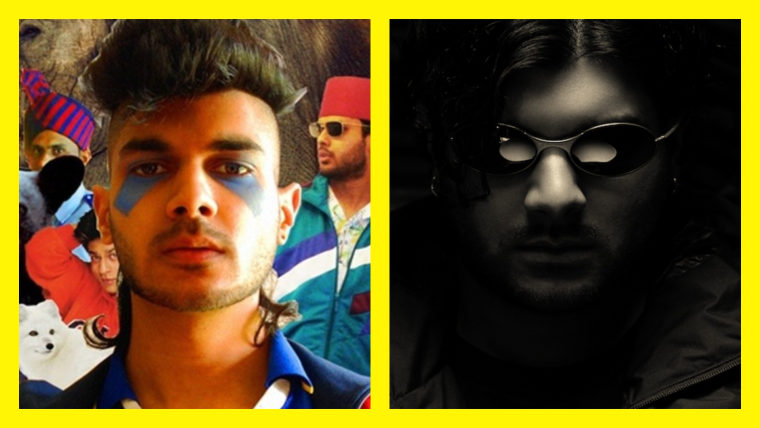
The opening seconds of Jai Paul’s leaked record Leak 04-13 (Bait Ones) say it all. “John Paul? What’s his name?” someone asks. “Jai Paul,” another answers, correcting the offhand anglicization of the producer’s name. The first time I heard that brief snippet of audio — barely ten seconds, barely even audible — I felt strangely, wonderfully seen. When you have a non-western name and live in a western country, you have those kinds of interactions constantly, conversations where people stumble over your name, try to change it, try to make it easier to digest. Hearing that tiny snippet of audio for the first time told me that not only was this music going to resonate with me for a long time, but that it was music for me, and other children of migrants (or migrant kids) living in western countries and finding peace through the cultural kaleidoscope of the internet. Six years on, that record is finally officially out, and still sounds like a cross-cultural marvel.
It’s generally pretty hard to find yourself within indie rock if you’re a person of color. I am not a steadfast advocate of representation for representation’s sake, but when you’re a teenager it’s nice to see yourself reflected in a community you revere so heavily. As a South Asian teen growing up in the early 2010s, basically the only truly famous brown people were M.I.A. — who was already into her brief period of cultural exile when I started high school — and Das Racist, who broke up not long after they began. There was a sense, too, that both M.I.A. and Das Racist were borrowing what wasn’t necessarily theirs; while the former incorporated Tamil into her songs and the latter sampled Bollywood songs, both still tended to lean heavily on interpolating and borrowing sounds and styles that had their own unique and untouchable importance.
Jai Paul was different. He was a producer of Indian descent making music that wasn’t necessarily about identity, but was certainly inextricable from it; you could hear the influence of filmi — music from Indian films — in the DNA of early tracks “BTSTU” and “Jasmine,” their rhythmic lilts and taut handclaps blending with the strains of pop and hip-hop present. As a teenager, seeing a young brown person synthesize their cultural heritage with pop culture to create something that was not only seamless and powerful but at the center of a certain cultural dialogue was mind-blowing. I was a teen who, like many first-generation children, was often in a process of actively trying to disengage and disassociate from anything that could tie me to my heritage and culture. Seeing Paul embrace his identity felt radical. It felt like the goal.
And that was to say nothing of Bait Ones track “Str8 Outta Mumbai,” a song built from an old filmi track into what was essentially Paul’s take on a dance song, or maybe bubblegum pop. Hearing “Str8 Outta Mumbai” still, six years on from its initial leak, feels monumental. I listen and I can hear the filmi music my parents would listen to on Saturday nights, the lullabies my ammamma would sing me as a child, the films on the TV at my aunty’s house. It, and the rest of Bait Ones by extension, makes me feel welcome in broader culture, rather than like a bystander. When it first came out, I could tell that my parents liked it a lot; they didn’t wrinkle their noses when I played it before going to school like they did so much other music. Even now, I doubt my parents know Britney Spears from Ariana Grande from Katy Perry, but they sure as hell know Jai Paul and the songs I would play them from Bait Ones.
There’s something about Bait Ones — the original version that leaked half a decade ago — that, even aside from the filmi samples, feels incredibly true of the 21st century first generation experience. It’s comprised of truly bizarre segments of culture: a grab from a Harry Potter film, a snippet from one of Gossip Girl’s worst ever plot lines, a cover of Jennifer Paige’s “Crush.” Bait Ones is music put together by someone looking at culture with few hangups or ideas of what constitutes good or bad taste, who learned pop culture through TV and the internet — a common experience when your family doesn’t necessarily get soap operas like EastEnders or Premier League soccer. Many of these samples, including Harry Potter and Gossip Girl, have been removed from the official version of Bait Ones, unable to be cleared. But the record still feels like cultural mish-mash; it exists in no discernible scene or genre because it draws from many. I can hear this sense of cultural populism present on Paul’s new tracks, too, in the way they kinda sound like Phil Collins produced by SOPHIE. It’s music made cool by virtue of the fact that it doesn’t know (or, perhaps, simply doesn’t care) what’s cool and what’s not.
I’m incredibly glad Bait Ones and its "double B-side" sequel have dropped on mass streaming platforms. Partly for me and all my friends who have been listening to shittily mastered versions of these songs for six years. But partly because it means that now, all the weird migrant and first-gen teens who have never seen themselves represented in indie music can find this record and, maybe, see themselves in it too.